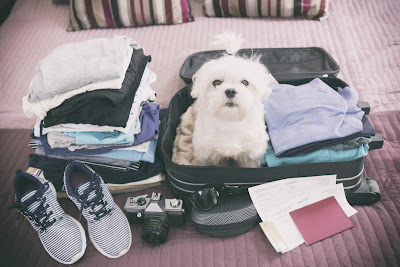Berkeley Heights Animal Hospital
269 Springfield Avenue, Berkeley Heights, NJ 07922
(908) 464-0023
Below, take a look at a few signs that suggest it's time to go:
1. They are making more noise than usual.
Some cats like to talk and some do not - here's where you need to know what type of personality yours has. If your cat tends to be on the quiet side, any time that they begin being more vocal than normal could indicate that they are in pain or distress.
2. They are sleeping for too long.
Yes, cats can sleep for about 16 hours a day, but if they are sleeping for too long and/or are ignoring meal and playtime to get some more shut eye, it could mean that they aren't feeling their best. While they may just be experiencing a common cold, you'll want to have them checked out.
3. They aren't eating.
Cats that don't eat could experience extremely negative effects - for example, if they go two or more days without any food, they might develop hepatic lipidosis, which is fatty liver disease. Since this could go so far as to be fatal, it's crucial that you contact your veterinarian the moment you notice your cat hasn't touched his or her food.
4. They aren't using their litter box.
Cats will occasionally avoid their litter box if they feel it's not clean enough, however, if they continue to not use it, it could be a sign of something more serious. For example, your cat could have some type of infection or parasite that is preventing him or her from getting to the box on time.
5. They are losing a ton of fur.
Noticing some loss of fur on your cat is usually normal, but if you start seeing patches of fur fall off your cat in excess, it's time to get help. In some cases, this could be a sign of ringworm - cats with ringworm often lose fur in circular patches, which later reveals that they have scaly skin. On the other hand, this could have to do with fleas - losing fur could be an allergic reaction. Last but not least, the loss of fur could also be a sign of internal problems such as thyroid disease.
In addition to the above, it's also important for you to keep track of when your cat was last at the vet for a wellness visit - even if nothing is medically wrong, you should keep your cat up-to-date with their exams!
At Berkeley Heights Animal Hospital, we specialize in various veterinary care services, including vaccines, surgical procedures, spays/neuters, dentistry and microchips! So, whether your cat requires immediate medical attention (we are proud to offer emergency and advanced care!) or is ready for their next wellness visit, know that we are always available to help!
For more information about our services or to schedule an appointment, please call (908) 464-0023. If your cat will be a new patient of ours, their first exam is FREE!




